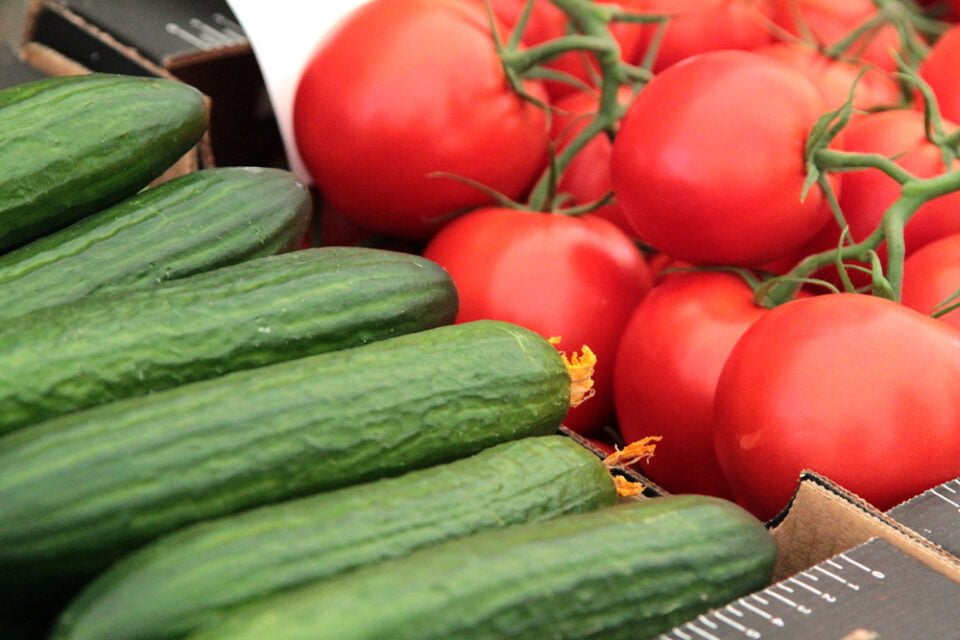Lithuanian vegetable farmers claim that Russian-grown cucumbers and tomatoes are entering Lithuania through Belarus and Poland with falsified origin documents. The country’s agriculture vice minister says EU restrictions could solve the problem.
“The main problem is preventing these goods from entering the EU. There is already free movement of goods within the EU and it is more difficult to control it without border checks, so the main task is to restrict the entry of these goods into the common market,” Vytenis Tomkus told LRT RADIO on Wednesday.
In March, he noted, Lithuania Latvia, Estonia, Poland, and the Czech Republic called on the European Commission to weigh in and consider restricting food imports from Russia and Belarus. At the moment, there are no sanctions on food products.
Read also: Aggressive rise in imports from aggressor: Russian cucumbers dominate Polish market
The Lithuanian Greenhouse Association said on Tuesday that Russian-grown vegetables, mainly cucumbers and tomatoes, were entering Lithuania through Belarus and Poland with falsified origin documents. Moreover, they are sold at prices that are several times lower than local produce or vegetables grown in Poland or Latvia.
“Most of the [Russian vegetables] are coming from Poland with falsified documents, and it is possible that some of our entrepreneurs do not even know that these vegetables were grown in the Russian Federation as they arrive with Polish documents,” Paulius Andriejavas, the association’s board chairman, told the LRT RADIO on Tuesday.
Vice Minister Tomkus says there were no direct imports of cucumbers or tomatoes from Russia last year. Lithuania mainly imported Russian mushrooms, peas, and cereals.




